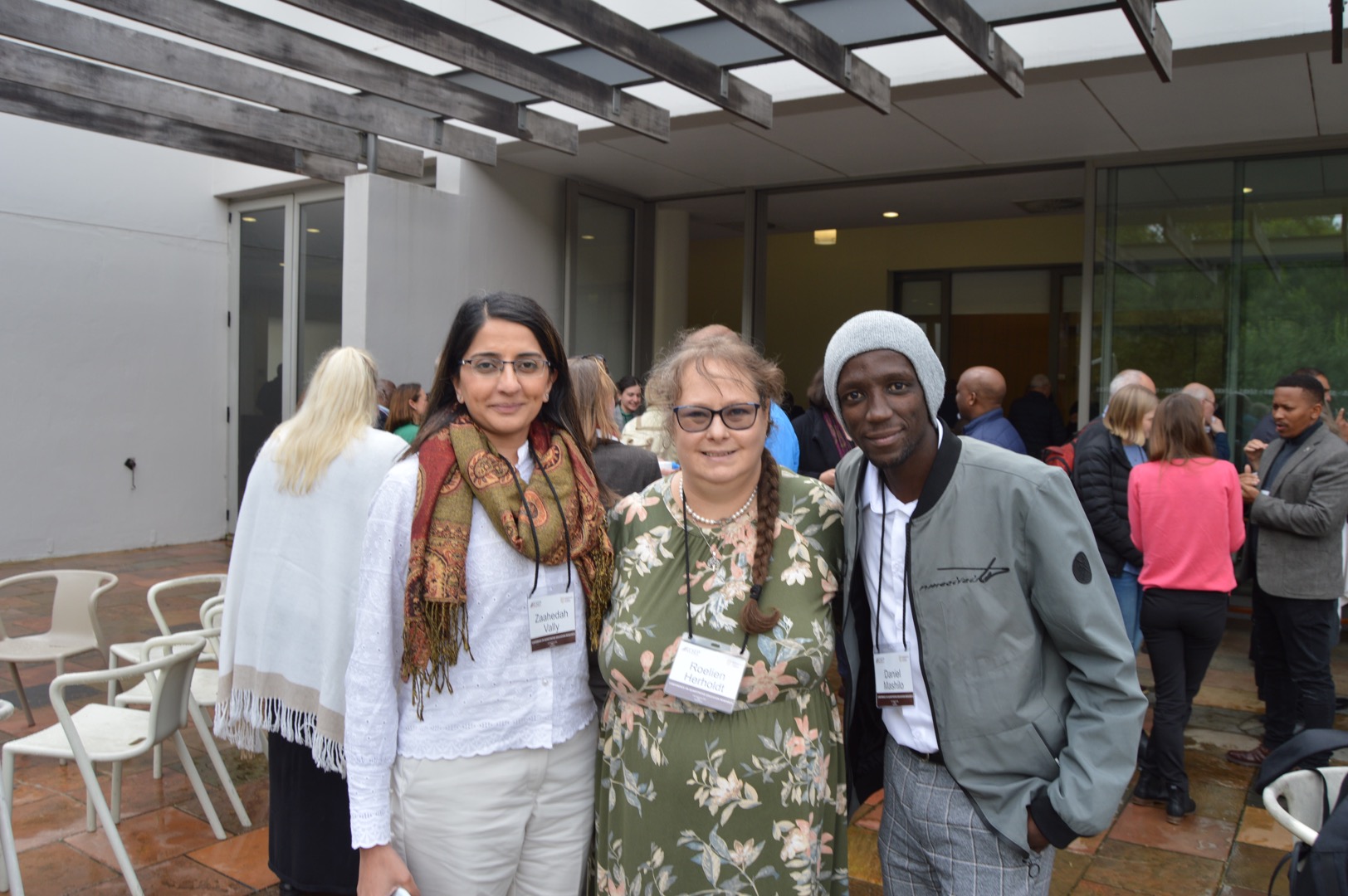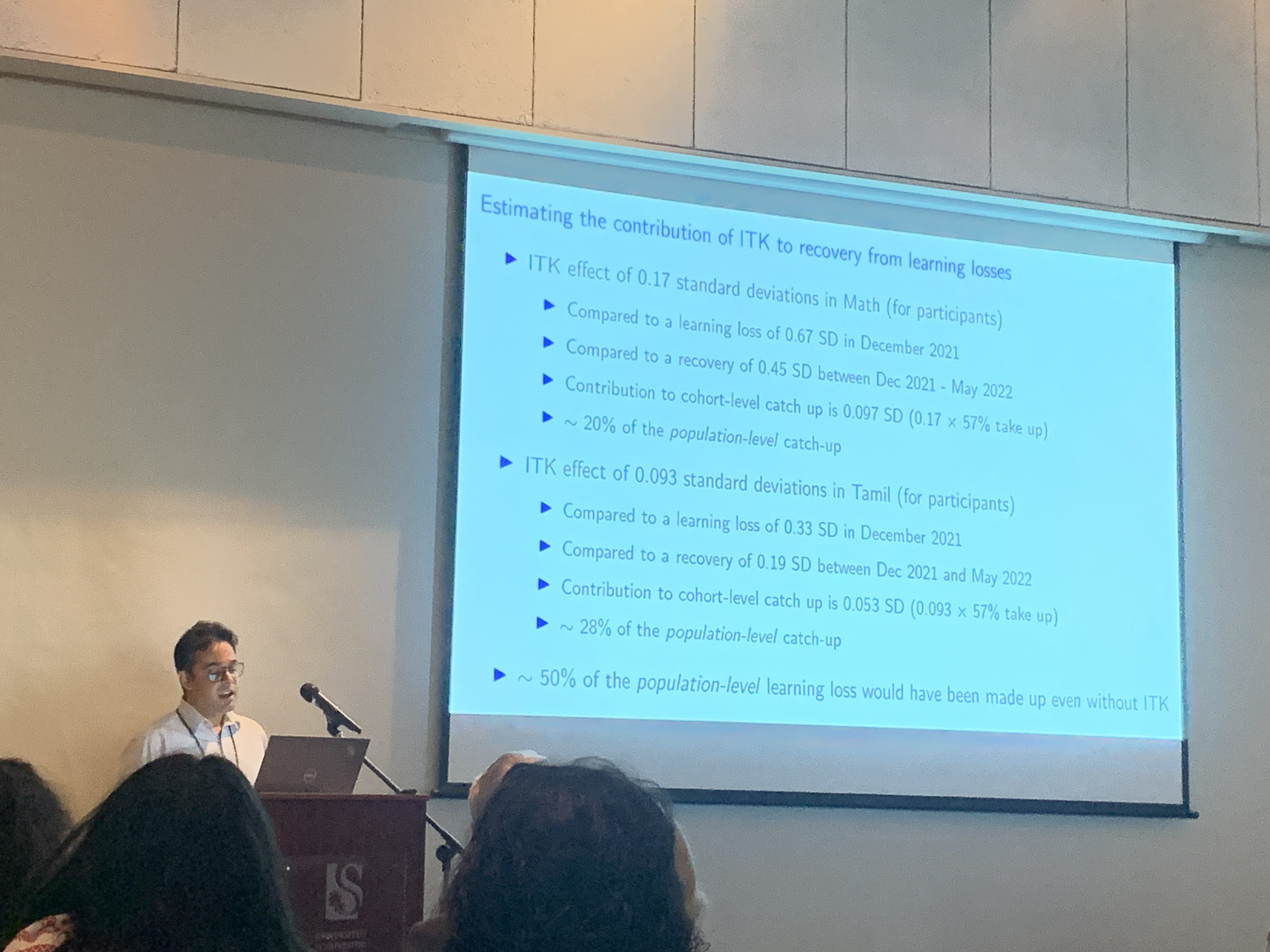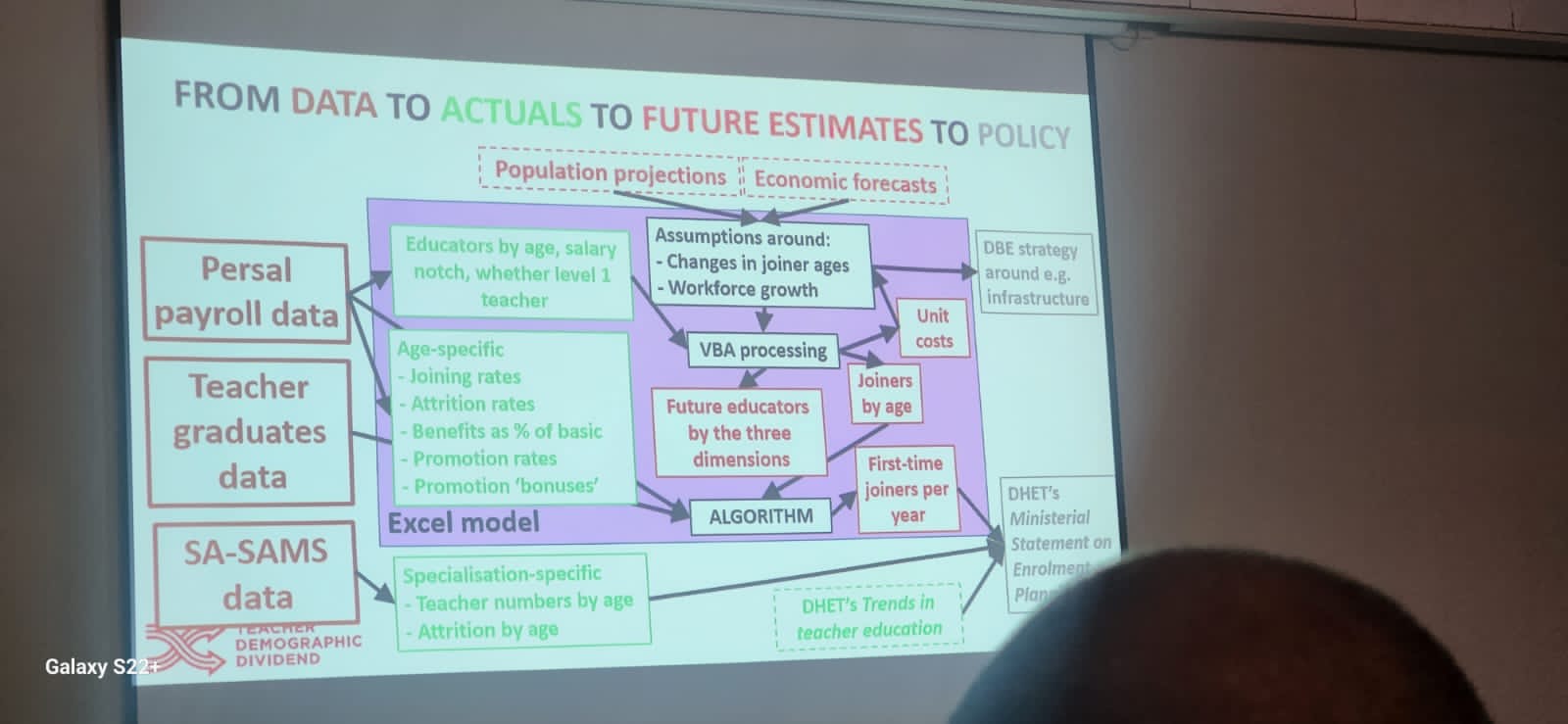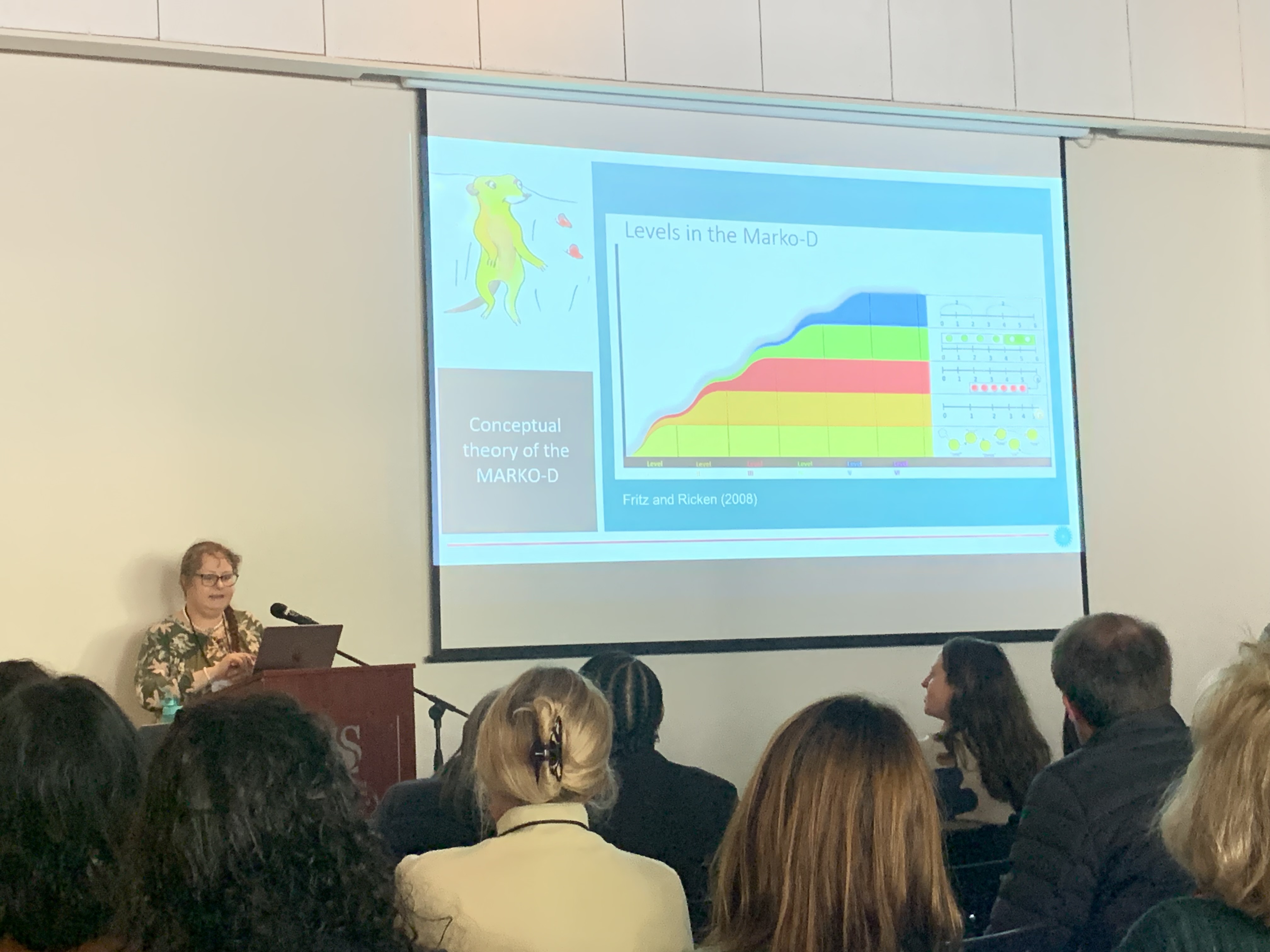Annual Research on Socioeconomic Policy (RESEP) conference
The Annual Research on Socioeconomic Policy (RESEP) conference takes place on the 5th of September 2023.
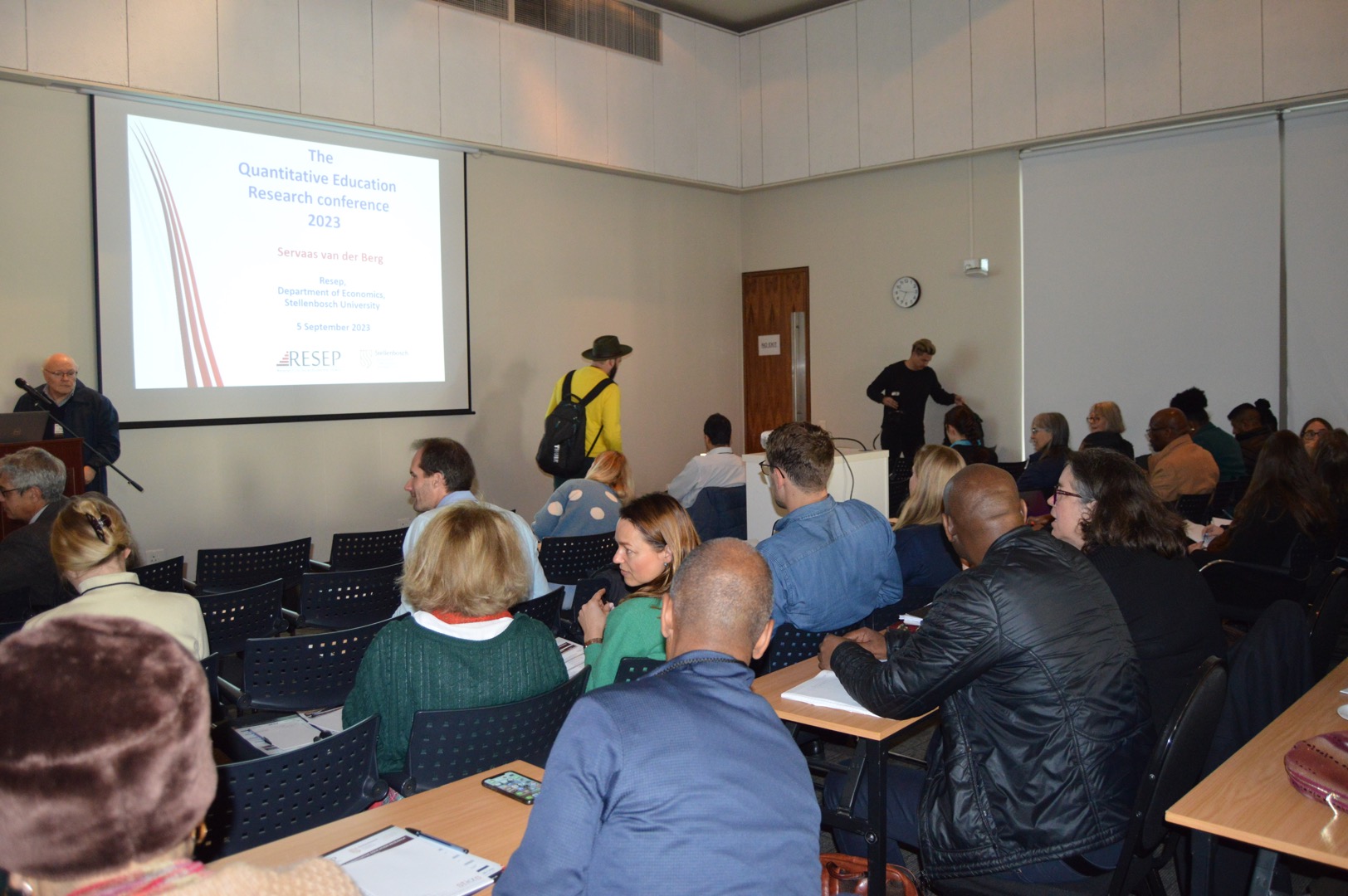
The JET team Roelien Herholdt (JET Specialist Manager: Assessment), Zaahedah Vally (JET Researcher) and Daniel Mashilo (JET Senior Statistician) are in Stellenbosch at the RESEP Conference.
Welcome and opening by Servaas van der Berg (RESEP)
"Learning losses for the majority of the population is quite large, given the latest PIRLS results. These losses are carried throughout a child's schooling career. What can be done given the current fiscal squeeze and teacher capacity?
There is greater leniency in the promotion of learners with repetition rates having decreased, and more learners reaching matric between 2018 and 2020. It's been made easier for learners to pass matric, despite learning losses which has a direct impact on the labour market and tertiary education sector." - Opening address by Servaas van der Berg (RESEP).
RESEP keynote address by Abhijeet Singh (Stockholm School of Economics)
Study conducted on 4-10 year olds in Tamil Nadu state, India. A baseline study was conducted in June - August 2019, and follow-ups were conducted in December 2021 - May 2022.
Assessments focused on measuring foundational literacy and numeracy. In 2021, there was a large drop in age-adjusted achievement (for 6-year-olds, the learning loss was 0.69 SD) compared to 2019. This meant that 6-year-olds were almost a year behind in terms of learning, while 8-year-olds were 23 months behind. Learning losses were bigger for older learners than younger learners.
After the first 6 months of learners returning to schools, two-thirds of the initial gap had improved in 2022.
Learning losses should not be looked at only at a certain point in time, as it may be misleading. The recovery rates were not significantly different for learners from poorer SES and parents with lower levels of education. The losses also don't have to be permanent. The Indian state government started a large supplementary instruction programme for recovery of learning losses, the Ilam Thedi Kalvi (Education at Doorstep) after-school remedial campaign. Learners from poorer households participated more actively in the ITK programme. The programme could have contributed to learning recovery and accelerated recovery.
Teacher demographics in SA - presentation by Martin Gustafsson
Teacher demographics in SA: Martin touched on the Teacher Demographic Dividend (TDD) project.
The TDD project seeks to understand the challenges and opportunities in renewing the teaching workforce in South Africa.The model considered educators by age, salary notch and first-time joiners. The learner-education (LE) ratio has worsened since 2011 (LE in 2011 was 27.4 and 29.8 in 2023). This has been driven largely by increased enrolment and children staying in school for longer while the number of educators has remained largely static over time.
Roelien presents on the Marko-D Sepedi validation study
Roelien Herholdt, presented on the Marko-D Sepedi validation study at the RESEP conference. The Marko-D SA Sepedi -test is a diagnostic mathematics conceptual test for 4 to 8-year-olds. The Marko-D SA is available in English, Afrikaans, Sesotho, isiZulu, and isiXhosa, and soon in Sepedi. Read more on the Marko-D tests: https://www.jet.org.za/news/news/jet-and-funda-wande-makro-d-tests
Learn more:
https://resep.sun.ac.za/conferences-workshops/